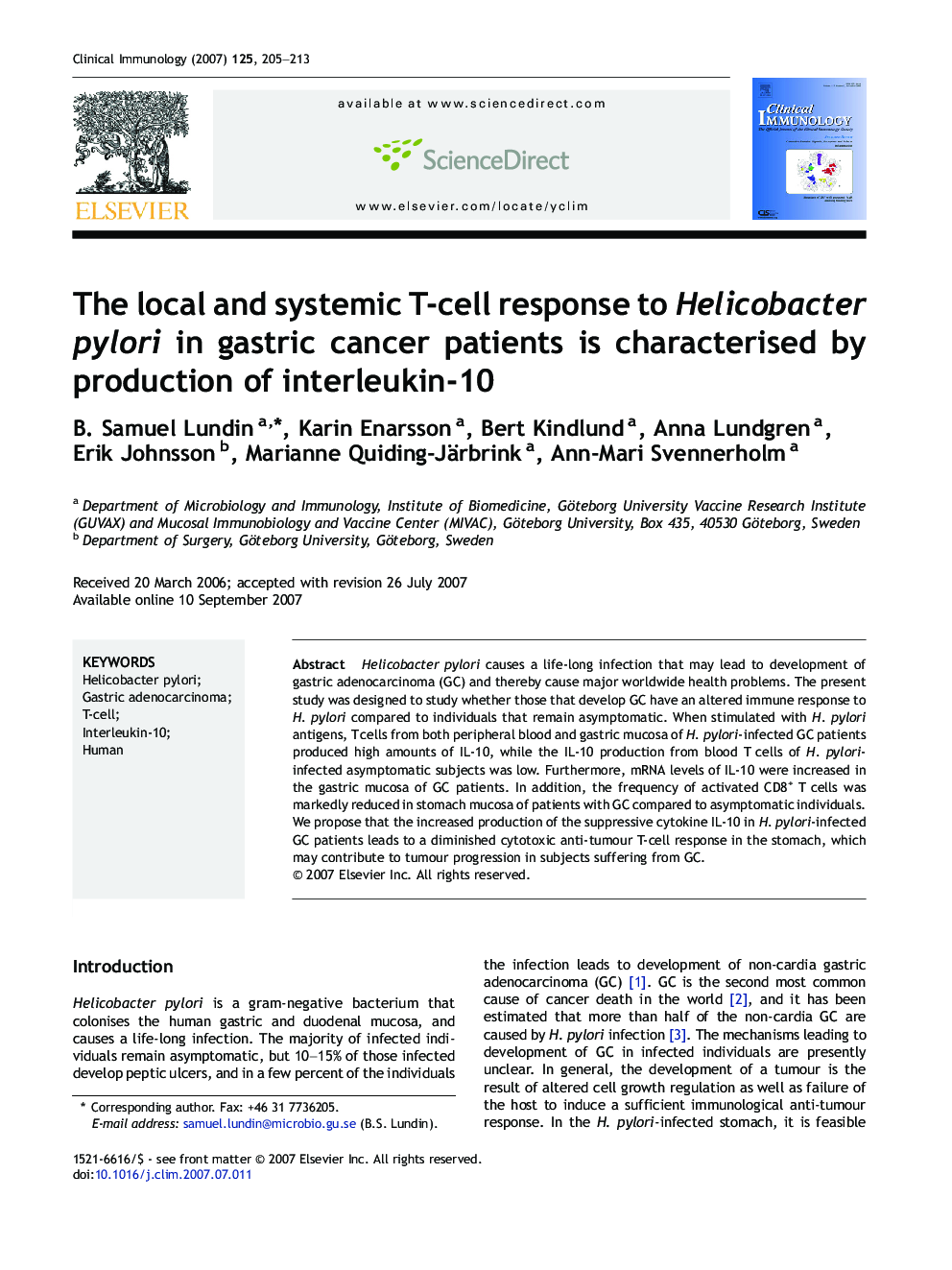| Article ID | Journal | Published Year | Pages | File Type |
|---|---|---|---|---|
| 3258518 | Clinical Immunology | 2007 | 9 Pages |
Helicobacter pylori causes a life-long infection that may lead to development of gastric adenocarcinoma (GC) and thereby cause major worldwide health problems. The present study was designed to study whether those that develop GC have an altered immune response to H. pylori compared to individuals that remain asymptomatic. When stimulated with H. pylori antigens, T cells from both peripheral blood and gastric mucosa of H. pylori-infected GC patients produced high amounts of IL-10, while the IL-10 production from blood T cells of H. pylori-infected asymptomatic subjects was low. Furthermore, mRNA levels of IL-10 were increased in the gastric mucosa of GC patients. In addition, the frequency of activated CD8+ T cells was markedly reduced in stomach mucosa of patients with GC compared to asymptomatic individuals. We propose that the increased production of the suppressive cytokine IL-10 in H. pylori-infected GC patients leads to a diminished cytotoxic anti-tumour T-cell response in the stomach, which may contribute to tumour progression in subjects suffering from GC.
